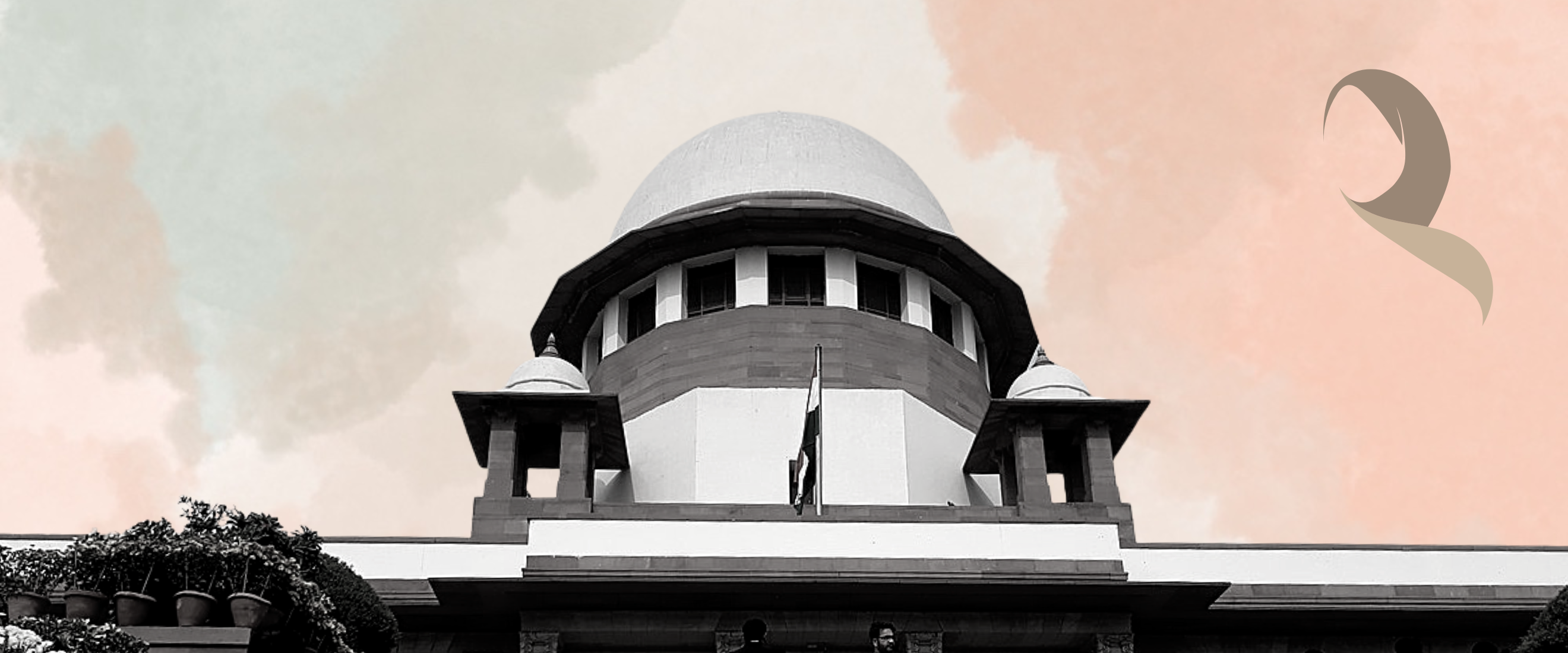Channel
SC Daily Update: SC Hears Arguments on Hijab Ban and EWS Reservations
A 2-Judge Bench of the Supreme Court Heard Arguments Seeking a Constitution Bench Referral For the Hijab Ban Challenge

Transcript
Welcome to SCO’s Daily Supreme Court update!
Today, Justices Hemant Gupta and Sudhanshu Dhulia waded through the complicated facets of the right to religion in India while hearing arguments against Karnataka’s Hijab Ban.
Appearing for Aishat Shifa, a Muslim student barred from entering her college while wearing the hijab, Senior Advocate Devadatt Kamat and Adv. Nizam Pasha placed two broad arguments before the Bench. Mr. Kamat argued that the ban was constitutionally unjustified. Mr. Pasha argued that the Karnataka High Court, while upholding the ban, misunderstood the essentiality of the Hijab in Islamic faith.
Sr. Adv. Devadatt Kamat pointed out that Article 25 protects the right to practice one’s religion and allows the State to limit the right only on certain grounds. To justify interference, the State has to prove that the practice harms public order, morality and health, a criteria that the Karnataka government had not fulfilled.
The Bench threw constant questions at Mr. Kamat today. Making a distinction, Justice Gupta said that wearing a Hijab in school is not the same as wearing it elsewhere. ‘Public Order’ within the school premises means whatever Order the schools find necessary to maintain.
Mr. Kamath countered that By the Karnataka government’s own admission, the order in schools was disrupted after some students wore saffron scarves and shouted slogans against women wearing hijabs. The Ban on Hijabs was imposed to curb this indiscipline.
Mr. Kamat insisted that a ban on Hijab cannot be allowed on the basis of a ‘Heckler’s veto’. A ‘Heckler’s Veto’ is when restrictions on speech are accepted because of an anticipated hostile reaction from opponents of that speech. Mr. Kamat stated that fundamental rights cannot be restricted on this basis.
The Bench, borrowing from the ‘hands-off’ stance the Karnataka government presented earlier this week, pointed out that the Government Order did not restrict any rights itself. It left it up to schools to decide whether the restriction is needed to maintain public order in the way that the school required. The Government Order merely clarified that a hijab ban will not violate Article 25.
Article 25 also allows restrictions on religious rights if a practice interferes with another citizen’s fundamental rights. ‘Whose fundamental rights am I harming by wearing the hijab?’, Mr. Kamat asked. The Bench stated that the question at hand was not whether others’ rights are affected, but whether women have a fundamental right to wear the Hijab in school at all. Mr. Kamat objected immediately, saying that fundamental rights are expansive positive rights. Their existence does not need to be proved.
Advocate Mr. Nizam Pasha, who argued next, claimed that wearing the Hijab is an essential part of the Muslim faith. Now, what kind of practices are essential to a religion is yet to be settled by a 9-Judge Bench that is reviewing the Sabarimala decision. He argued that the Karnataka High Court wrongly contextualised the Quran and held that Hijab is not essential to Islam. The High Court said the Hijab is not mandatory as the Quran does not prescribe a punishment for not wearing it. Mr. Pasha argued that in Islam, there is no temporal punishment for spiritual acts. Punishment is served in the afterlife.
The case will be heard next on Monday at 2PM. Senior Advocate Salman Khurshid will place his arguments before the Court.
In another important development in the Court, a Bench led by CJI Lalit will hear a batch of petitions challenging the Citizenship Amendment Act starting from September 12th, 2022. The case was last heard in 2020.
For more information, visit scobserver.in, or follow us on the usual platforms!